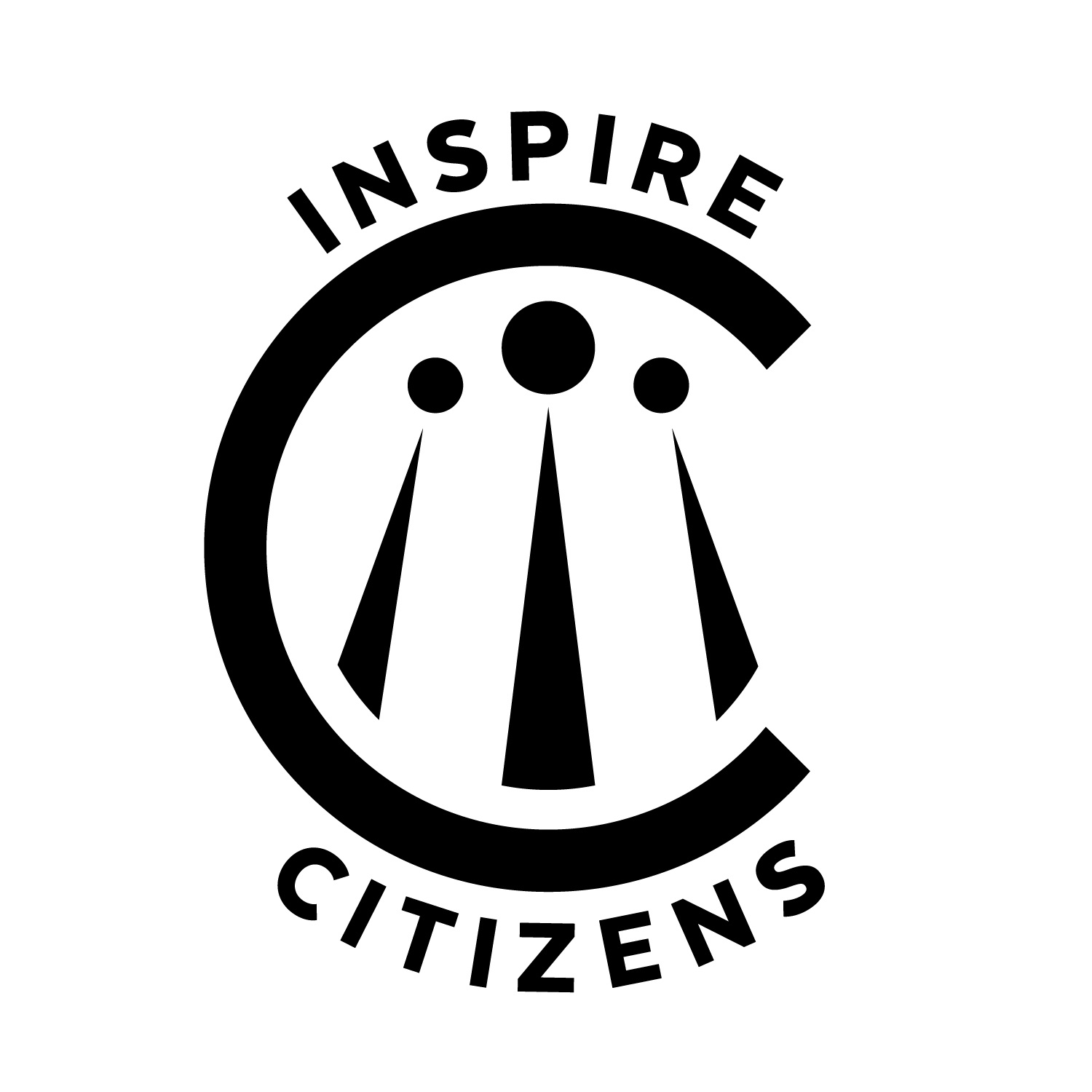Mandarin Environmental Advocacy and Literacy
What’s Happening in These Photos?
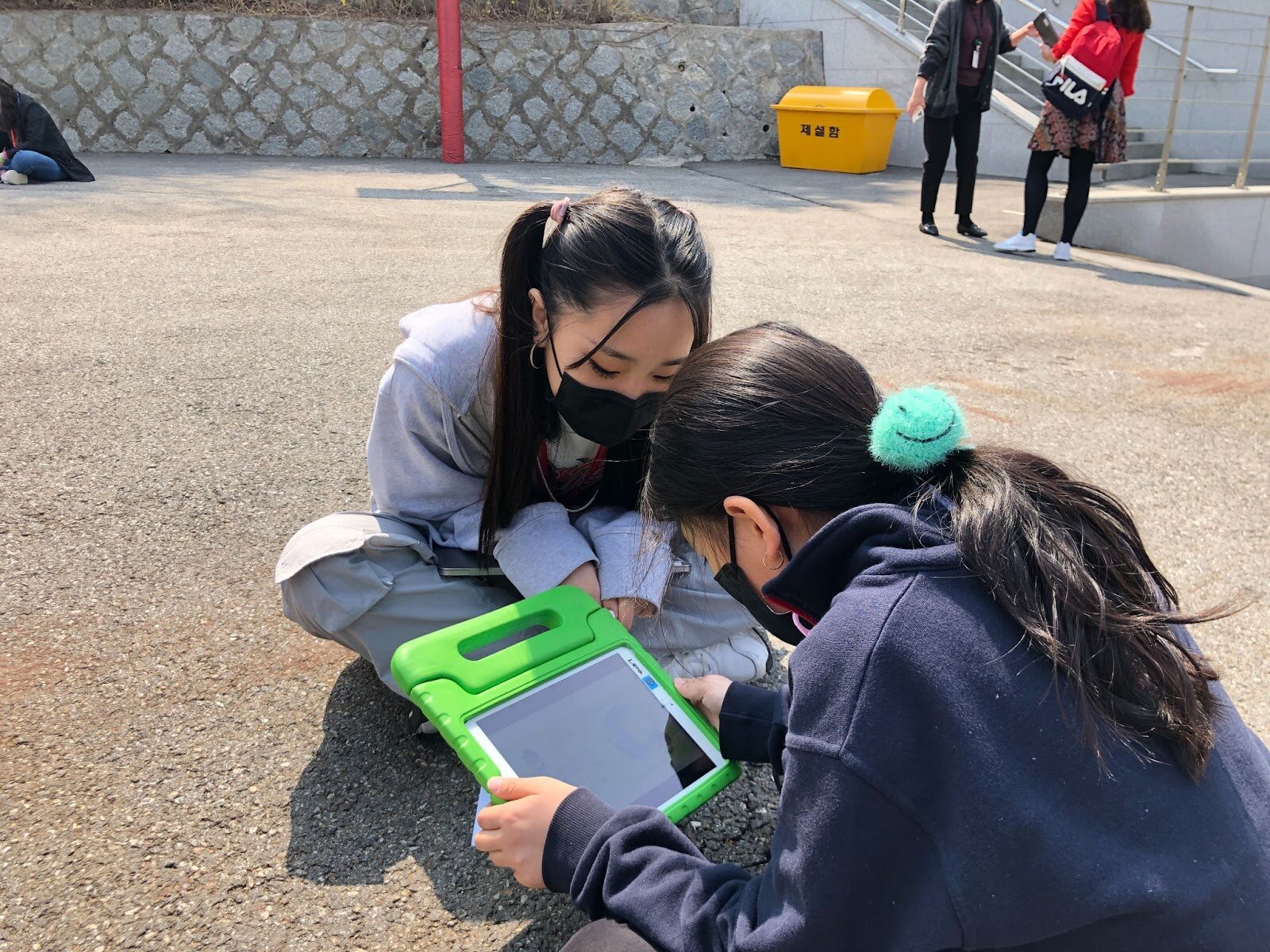
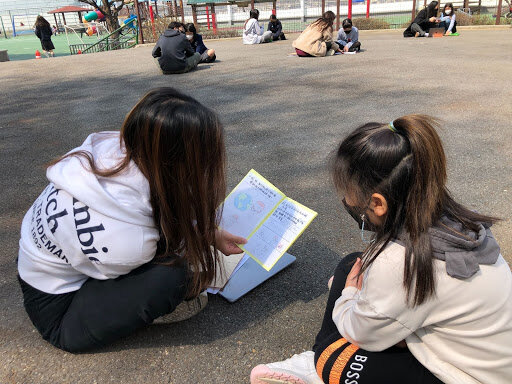
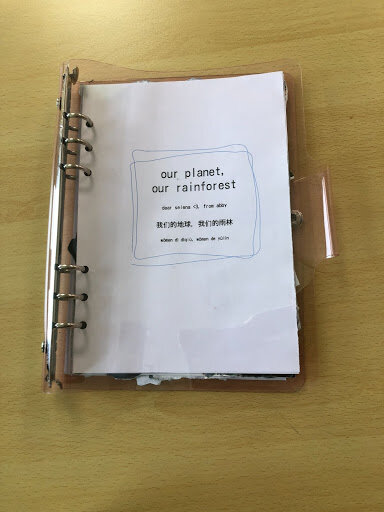
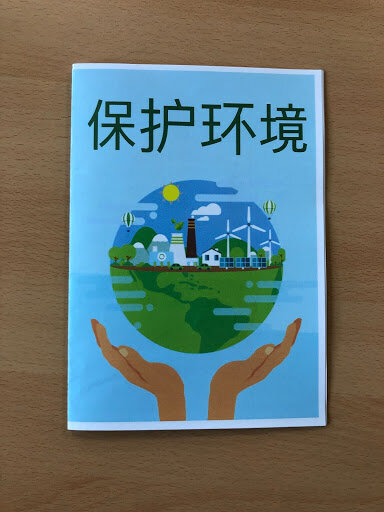
WHAT
High School Mandarin students studied environmental advocacy and how to effectively advocate to community members. As a means to taking action, students decided that the best people to advocate were the younger generations.
Students used their Mandarin language skills and applied them by making differentiated learning resources for a younger Mandarin audience at the school. They personalized the resources to the interests and language skills of the students, culminating their project in a group reading and sharing of their resources. The younger students added these resources to their personal and class libraries afterwards.
WHY
Not only was this a way for students to take action for the future, but it was a way for students to apply Mandarin language skills in a relevant way. While students were able to apply their language skills to an authentic service output, their teacher was able to obtain evidence of higher levels of language proficiency. Utilizing an Empathy to Impact approach allowed for a richer articulation of purpose, analysis, practical application and community service as action.
HOW
Students explored mentor texts around sustainability and environmental issues, learned key vocabulary, applied informational and argumentative writing styles, and wrote a formal argumentative text in which they advocated to help eradicate a particular environmental issue. Students also decided at the beginning of the unit that they want to use this argumentative writing to positively impact the younger generations, and thus, they were put in touch with a younger Mandarin class.
Due to COVID-19 restrictions, the students were not able to interact in the same classroom, but they conducted zoom calls, used surveys, and shared prototypes to communicate with one particular student from the class.
The younger students were surveyed about their Chinese language proficiency, about their personal interests and about their background knowledge of environmental issues, and with this information HS Mandarin students followed Empathy to Impact as a pathway to the MYP Service as Action planning cycle to create personalized learning resources for their identified learner.
The published learning resources included graphic novels, video games, story books, movies, and cartoons all aimed at teaching the message of environmental sustainability at an age-appropriate level.
Click below to explore a student reflection on learning:
Thank you
Xin Dong at SFS for her collaboration and commitment to environmental advocacy. She provided space for the students to lead and use Empathy to Impact as a way to amplify the SFS mission and for our younger Mandarin environment enthusiasts to explore and engage with language and advocacy for diverse audiences.
